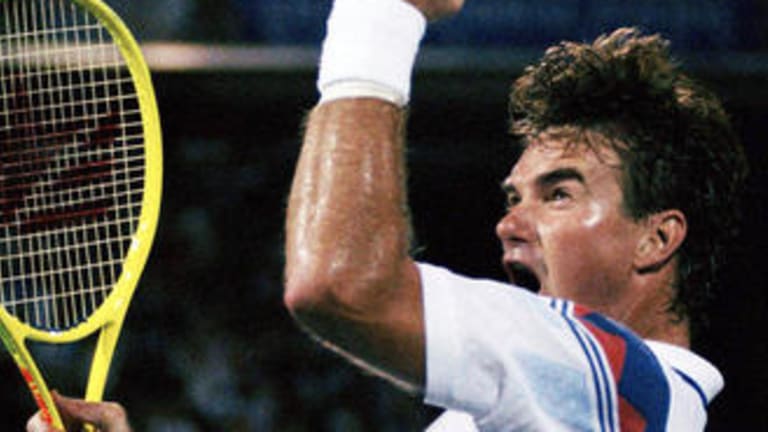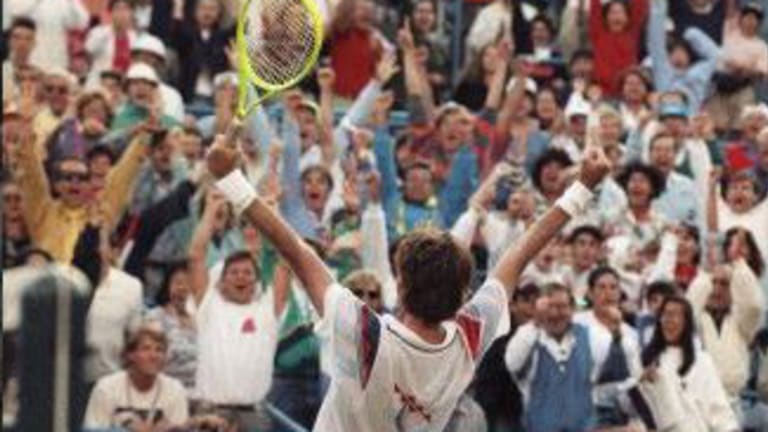This year marks the 50th anniversary of TENNIS Magazine's founding in 1965. To commemorate the occasion, we'll look back each Thursday at one of the 50 moments that have defined the last half-century in our sport.
In August of 1990, Jimmy Connors left the grounds of the U.S. Open without having played a match, something that had never happened in his 20 years at the tournament. But there was no way around it this time: The five-time champ, who at 37 was well into the sunset years of his career, was suffering from a wrist injury that just wouldn’t let up.
Jimbo, of course, wasn’t quite ready to sail off into the sunset just yet. According to tennis writer Joel Drucker, as he rode out of the National Tennis Center in a taxi, Connors turned back to look at Louis Armstrong Stadium and told the crew of cronies that surrounded him, “If I ever get back there, that place is going to rock and roll.”
By August of ’91, ‘if” had turned to “when.” Connors, despite being one year closer to 40, had reached the third round at the French Open and Wimbledon, and had been serenaded off the court by packed houses in both places. To him, though, those were just the warm-up acts before the main event. “I had only one goal in mind: New York,” Connors said.
Since winning the inaugural Open at Flushing Meadows in 1978, the Big Apple had been “my stage and the crowd my people,” he said. In ’91, he believed a deep run there was still possible. “If I can win a match or two,” he told himself as he trained and carbo-loaded like a man half his age, “I know the crowd will do the rest for me.”
Two sets into his opening match at the ’91 Open, though, all of his work seemed to have gone for nought. The truth was out: Even James Scott Connors, the warrior's warrior, was no match for father time. That night a packed crowd had arrived on time, but Connors’ game hadn’t. Uncharacteristically nervous, he went down two quick sets and a break in the third to Patrick McEnroe. Rather than serenading him off, the fans in the corporate boxes were bolting early; even Jimbo’s old friends Jose Luis Clerc and Ilie Nastase deserted him.
A few hours later, around 1:00 in the morning, Nastase arrived home and said to his wife, “What a shame it was about Jimmy.”
“About what?” she asked. “Look at the TV. He’s serving for the match right now.”
How did Jimbo turn it around? As he said, this was his house.

